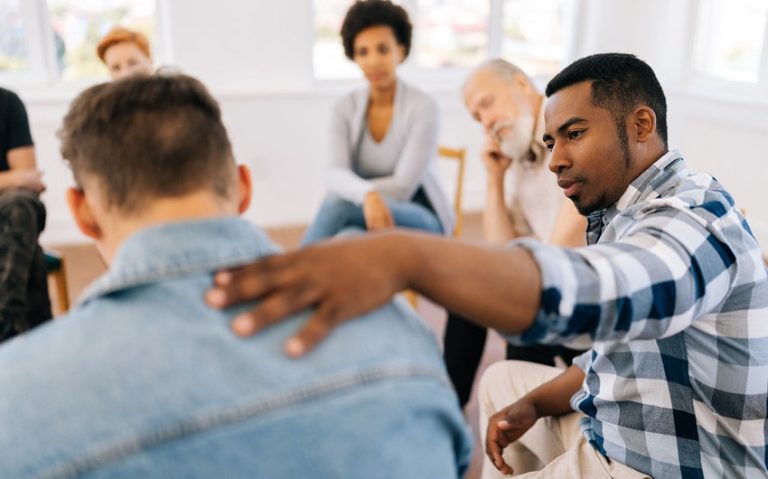Why Don’t People Like Me? 6 Reasons to Explore
At some point in our lives, we’ve all grappled with the unsettling question: “Why don’t people like me?” This universal concern touches on deep-seated fears of rejection and the longing for acceptance. It’s a reflection of our innermost insecurities, often magnified by our social interactions and the digital world we navigate daily.
This article aims to explore the various reasons behind this pervasive sentiment, offering insights into how we can transform our social experiences into opportunities for genuine connection and personal growth.
Understanding the Feelings of Not Being Liked

Image source: Pinterest
The feelings of not being liked can be deeply unsettling, tapping into our fundamental desire for social belonging and acceptance. At the heart of these feelings lies a complex mix of emotions, including fear, sadness, and often, loneliness. The question “Why don’t people like me?” isn’t just about seeking popularity; it’s a reflection of our need to feel understood, valued, and part of a community.
Psychologically, the impact of feeling disliked is profound. Humans are inherently social creatures, and our well-being is closely tied to our social relationships. Research in social psychology has shown that social rejection activates many of the same neural pathways as physical pain, underscoring how distressing it can be to feel excluded or disliked.
This biological response is a testament to the importance of social connections throughout human evolution, where being part of a group was crucial for survival.
The experience of feeling disliked can lead to a cascade of negative emotional states. It can erode self-esteem, making individuals question their worth and value. This questioning can become a cycle, where low self-esteem leads to behaviors that further alienate others, reinforcing the belief that one is not likable.
Moreover, the anticipation of rejection can cause people to withdraw from social situations, leading to isolation and deepening the feelings of loneliness.
For many, these feelings are not constant but are triggered by specific situations or interactions that evoke feelings of inadequacy or insecurity. It could be as subtle as an unanswered message, an offhand comment, or being left out of a social gathering.
These instances, though seemingly minor, can have a significant emotional impact, especially when they tap into previous experiences of rejection or neglect.
It’s also important to recognize the role of cognitive biases in these feelings. The negativity bias, for instance, can lead individuals to pay more attention to negative social cues, interpreting them as proof that they are not liked, even when positive interactions outweigh these negative experiences.
Similarly, the confirmation bias can cause individuals to selectively remember and interpret events in a way that confirms their belief of being disliked, overlooking evidence to the contrary.
Understanding these feelings requires acknowledging their complexity and the multifaceted reasons behind them. It’s a necessary step towards addressing the underlying issues and moving towards a healthier social self-concept. Recognizing the psychological underpinnings of feeling disliked can be empowering, offering a pathway out of the cycle of negative self-perception and towards more positive social interactions.
Common Reasons Why People Might Struggle With Being Liked

Image source: Pinterest
The struggle with being liked can stem from a variety of factors, each influencing how we interact with others and how they perceive us. Understanding these reasons can provide insights into improving our social relationships and overall well-being.
1. Social Skills and Behavior
One of the most straightforward reasons people might struggle with being liked is due to a lack of social skills or awareness. This can include difficulties in reading social cues, engaging in appropriate conversation, or understanding others’ boundaries.
Behaviors that might push people away include being overly negative, not listening, interrupting, or talking excessively about oneself without showing interest in others. Such behaviors can create a barrier to forming meaningful connections.
2. Mismatch in Values or Interests
Another common reason is a mismatch in values, interests, or lifestyles. People naturally gravitate towards those with whom they share similarities, as these commonalities form the basis of many social interactions and relationships.
When there is a significant difference in values or interests, it can lead to misunderstandings or a lack of interest in deepening the relationship, resulting in feelings of rejection or exclusion.
3. Perception and Reality
Perception plays a crucial role in social interactions. How one perceives oneself and how one believes others perceive them can significantly impact feelings of likability.
Insecurities, low self-esteem, or past experiences of rejection can distort one’s perception, leading to the belief that others do not like them, even in the absence of concrete evidence. This skewed perception can prevent genuine social connections, as it may cause individuals to misinterpret neutral or positive interactions as negative.
4. The Impact of Social Media
Social media has a profound impact on how we perceive our social standing and likability. Constant exposure to the highlight reels of others’ lives can lead to comparisons that diminish one’s self-esteem and sense of social belonging.
This digital platform can also distort the reality of social connections, where the number of likes or followers is mistakenly equated with real-life likability and acceptance.
5. Fear of Vulnerability
A fear of vulnerability can also hinder likability. Opening up and sharing personal thoughts and feelings is crucial for deepening relationships. However, fear of judgment or rejection may prevent individuals from showing their true selves, leading to superficial interactions that fail to foster genuine connections.
6. Lack of Empathy or Understanding
Finally, a lack of empathy or understanding towards others can be a significant barrier to being liked. Relationships thrive on mutual respect and understanding. When people fail to show empathy, it can lead to conflicts or misunderstandings, making it difficult for others to form a positive connection with them.
Understanding these common reasons why people might struggle with being liked is the first step towards addressing them. By reflecting on these factors and working towards improvement, individuals can enhance their social skills, adjust their perceptions, and foster deeper, more meaningful connections.
Self-Reflection and Growth

Image source: Pinterest
Embarking on a journey of self-reflection and personal growth is pivotal in overcoming the barriers to being liked and improving social relationships.
This process allows individuals to gain deeper insights into their behaviors, perceptions, and the impact they have on others. It is a pathway not just toward being more likable but also toward building a more authentic and fulfilling social life.
1. The Importance of Self-Awareness
Self-awareness is the cornerstone of self-reflection and growth. It involves understanding one’s own emotions, behaviors, and the effects they have on others.
By becoming more self-aware, individuals can identify aspects of their behavior that may contribute to negative social perceptions, such as being overly critical, dismissive, or not showing enough interest in others. Recognizing these behaviors is the first step toward making meaningful changes.
2. Examining Perceptions and Biases
A significant part of self-reflection involves examining one’s perceptions and biases, particularly how these influence the way we interpret others’ actions. Many people suffering from feelings of unlikability may find that their perceptions are skewed by past experiences, insecurities, or cognitive biases.
By challenging these perceptions and striving for a more balanced view of social interactions, individuals can reduce the impact of these biases on their social life.
3. Acknowledging and Addressing Insecurities
Insecurities play a major role in how likable we feel. They can cause us to withdraw from social situations, avoid vulnerability, or act in ways that push others away. Acknowledging these insecurities is crucial.
Addressing them might involve challenging negative self-talk, seeking feedback from trusted friends, or even professional help when necessary. Growth involves not only recognizing these insecurities but also taking active steps to build self-esteem and confidence.
4. Embracing Change and Flexibility
Self-reflection often leads to the realization that change is necessary. This might mean developing new social skills, such as active listening or empathy, or being more open and authentic in interactions.
It also involves being flexible in one’s approach to social situations, willing to try new ways of connecting with others, and not being discouraged by setbacks. Growth is a process, and embracing change is part of evolving into a more socially connected individual.
5. The Role of Positive Relationships
Self-reflection should also involve considering the types of relationships we foster and how they contribute to our growth. Surrounding ourselves with positive, supportive individuals can greatly enhance our journey towards personal growth. These relationships can provide constructive feedback, encouragement, and the kind of social interactions that reinforce positive changes.
6. Moving Forward with Kindness and Compassion
Finally, self-reflection and growth are deeply rooted in kindness and compassion, both towards oneself and others. Being kind to oneself by acknowledging progress, however small, and extending compassion to others by understanding their perspectives can transform social interactions.
This approach not only makes individuals more likable but also enriches their social experiences, creating a cycle of positive interactions and mutual respect.
Self-reflection and personal growth are ongoing processes that require patience, effort, and a willingness to be vulnerable. By committing to this path, individuals can improve their social connections, feel more liked and appreciated, and ultimately lead more fulfilling social lives.
Building Better Social Connections

Image source: Pinterest
Enhancing social connections is a multifaceted process that requires a deliberate approach to interacting with others and nurturing relationships. It’s about moving beyond the question of “why don’t people like me?” to “how can I connect better?” Here are strategies to help build stronger, more positive social connections.
1. Improving Social Skills
Developing strong social skills is fundamental to building better connections. This includes learning to communicate effectively, understanding non-verbal cues, and being a good listener. Active listening, in particular, can make others feel valued and understood, laying the groundwork for deeper relationships.
Practicing empathy, showing genuine interest in others’ lives, and sharing about oneself in a reciprocal manner are also key components. Joining groups or workshops focused on improving social skills can provide practical experience and feedback.
2. Finding the Right Community
Feeling connected often comes from being part of a community that shares your values, interests, or goals. Identifying such communities can involve exploring local clubs, online forums, or organizations related to your interests.
Volunteering for causes you care about can also connect you with like-minded individuals. The key is to actively participate and engage with these communities, as shared experiences can foster a sense of belonging and acceptance.
3. The Role of Empathy and Kindness
Empathy and kindness are powerful tools for building social connections. Empathy allows you to understand and share the feelings of others, facilitating deeper communication and trust. Kindness, even in small gestures, can significantly impact how others perceive and respond to you.
Showing appreciation, offering help, and being considerate of others’ needs and boundaries are simple yet effective ways to nurture relationships.
4. Being Open and Vulnerable
True connections are formed when individuals are willing to be open and vulnerable with each other. Sharing your thoughts, feelings, and experiences can invite others to do the same, creating a foundation of trust and mutual understanding.
However, it’s important to gauge the level of openness appropriate for different relationships and situations. Being selectively vulnerable with those you trust can strengthen bonds and encourage closer connections.
5. Setting Healthy Boundaries
While being open and engaging is crucial, so is setting healthy boundaries. Boundaries help define what you are comfortable with in relationships, protecting your well-being and ensuring mutual respect.
Communicating your boundaries clearly and respectfully helps prevent misunderstandings and builds stronger, healthier connections. It also sets the stage for relationships where both parties feel valued and understood.
6. Embracing Positivity
Adopting a positive outlook can attract others and encourage more meaningful interactions. This doesn’t mean ignoring the realities of life or your feelings but focusing on solutions rather than problems and seeking joy in small things. Positivity can be contagious, and by embodying it, you can create a more inviting social atmosphere.
7. Continual Effort and Patience
Building and maintaining social connections is an ongoing process that requires effort and patience. Relationships evolve over time, and setbacks are part of the journey. By committing to continual improvement and understanding that building connections takes time, you can foster more fulfilling and lasting relationships.
Building better social connections is about more than just increasing your social circle; it’s about deepening the quality of your interactions and finding genuine companionship and support. By focusing on these strategies, you can enhance your social skills, find your community, and create meaningful, lasting connections.
Conclusion
Tackling the question “Why don’t people like me?” isn’t about changing who we are to fit in but rather understanding and improving our social interactions and perceptions.
By reflecting on our behaviors, embracing personal growth, and seeking out the right communities, we can overcome feelings of rejection and build stronger, more fulfilling connections. Remember, the journey to being liked begins with liking ourselves and extending that kindness to others.







